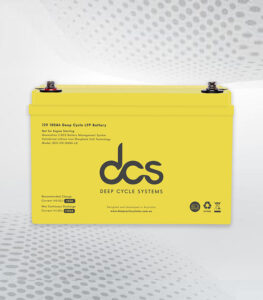Accurate inventory management is essential across various industries. From healthcare to retail, having precise data about stock levels can prevent losses, delays, and inefficiencies. RFID systems have emerged as a leading technology to tackle these challenges, offering real-time visibility and accurate tracking. Here’s how RFID is improving inventory accuracy in healthcare and beyond.
The Importance of Accurate Inventory Management
Inventory mismanagement can lead to serious issues, including operational disruptions and financial losses. In healthcare, this can even put lives at risk. Hospitals, clinics, and pharmacies rely on precise stock control to ensure that medical supplies and equipment are always available. An inventory RFID system offers a reliable solution to these challenges, providing real-time data and reducing errors that can result from manual tracking.
How RFID Systems Work?
RFID systems use radio waves to communicate between tags attached to items and readers that collect data. These tags don’t need direct contact or line-of-sight scanning, making RFID more efficient than traditional barcode systems.
Multiple tags can be read at once, speeding up inventory checks and reducing human error. With RFID, inventory accuracy improves, leading to better decision-making and streamlined operations.
The Role of RFID in Healthcare
In healthcare, accurate inventory management is critical for patient safety. Hospitals use RFID technology to track medical supplies, medications, and high-value equipment. This ensures that staff can quickly locate necessary items, reducing delays in treatment. An RFID healthcare system also minimizes waste by tracking expiration dates and ensuring that products are used before they become obsolete.
RFID Beyond Healthcare
While RFID is invaluable in healthcare, its benefits extend to other industries as well. Retailers, manufacturers, and warehouses use RFID to monitor stock levels, track shipments, and optimize their supply chains.
In these sectors, RFID helps reduce overstocking and understocking, improving profitability and operational efficiency. The ability to access real-time data allows businesses to react quickly to changing market demands.
Key Benefits of RFID Systems
RFID offers several advantages over traditional inventory management systems:
- Real-time visibility: RFID provides up-to-the-minute information about stock levels, reducing discrepancies.
- Increased efficiency: Automating inventory tracking saves time and reduces the likelihood of human error.
- Improved security: RFID tags can help prevent theft and ensure that only authorized personnel access sensitive items.
- Cost savings: By improving accuracy, RFID systems help reduce waste, overstocking, and losses.
RFID in Warehouses
In warehouses, inventory management is crucial for maintaining smooth operations. RFID systems help track assets and ensure that stock levels remain accurate. This reduces delays caused by misplaced items and improves overall productivity. An RFID asset tracking warehouse system allows warehouse staff to locate products quickly, speeding up order fulfillment and improving customer satisfaction.
Looking Ahead: The Future of RFID
The use of RFID technology is expected to grow as industries recognize its potential for improving accuracy and efficiency. In healthcare, RFID will likely play a larger role in patient safety and supply chain management. Other sectors will continue to benefit from improved visibility and streamlined operations. As technology advances, RFID systems will become even more versatile and accessible.
Conclusion
RFID technology is revolutionizing inventory management in healthcare and beyond. By providing real-time data, improving accuracy, and reducing human error, RFID offers a powerful solution to inventory challenges. Whether in hospitals, warehouses, or retail settings, RFID systems are essential for maintaining smooth operations and ensuring that critical supplies are always available.




